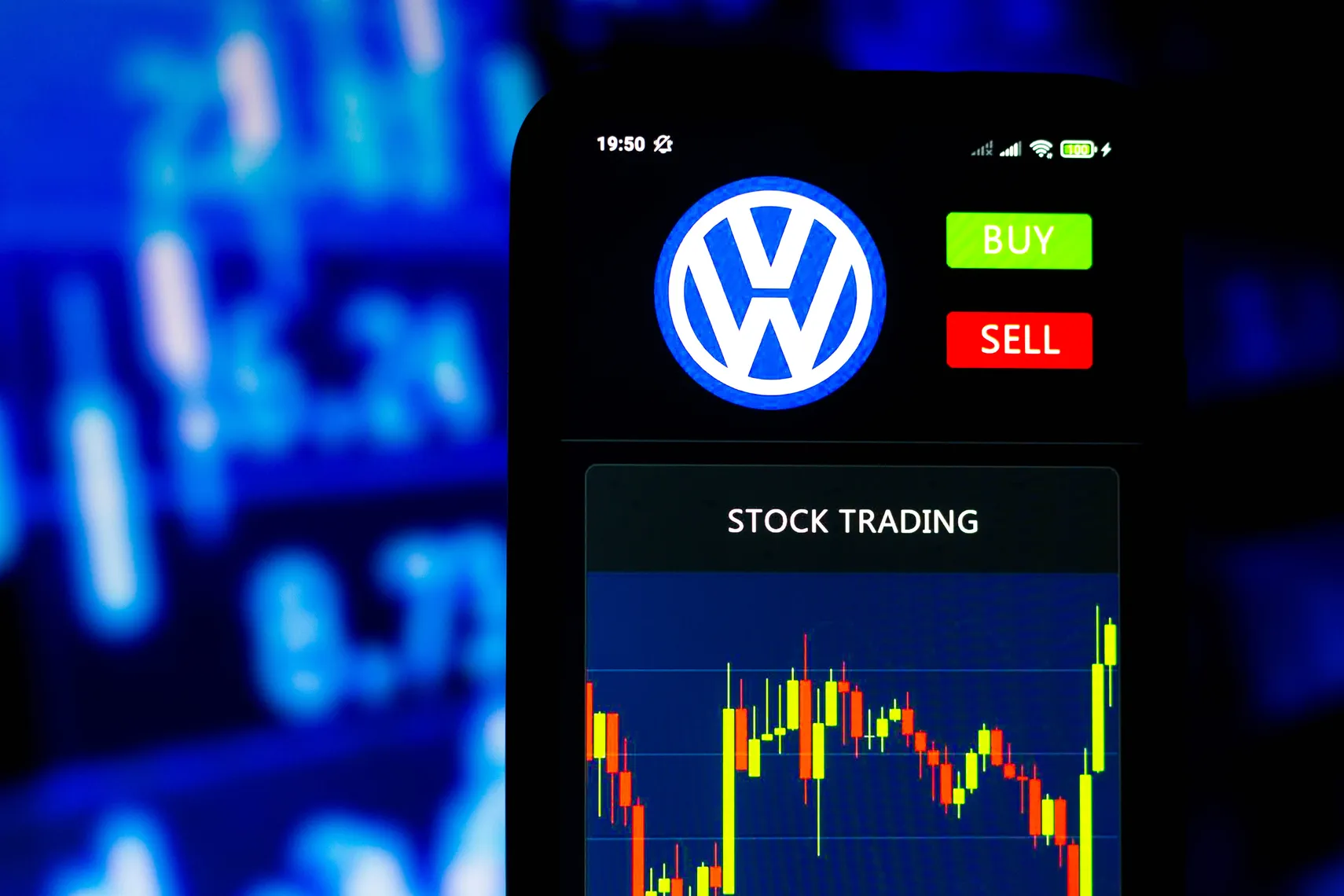Volkswagen short squeeze: history and market context
This article examines the likelihood of a Volkswagen short squeeze today, analysing recent data and revisiting the factors that enabled earlier squeezes.
Volkswagen (VOW3) stock became one of the focal points for retail investors during the early 2020s “meme stock” wave. At the time, traders active on online forums such as Reddit’s Wall Street Bets coordinated buying activity to raise the prices of heavily shorted stocks.
By doing so, they triggered a surge in Volkswagen’s share price — its highest level since the historic 2008 short squeeze. With VW stock now trading about 46% below its 2021 peak, some investors continue to ask whether another similar event could occur.
Past performance is not a reliable indicator of future results.
What is Volkswagen? Company overview
Volkswagen was founded in the 1930s to produce an affordable car for Germany’s middle class. Production was disrupted by the Second World War but resumed in 1945 under Allied supervision.
Today, Volkswagen is the world’s second-largest automobile manufacturer, producing around 6.6 million vehicles year to date (Q3 2025) — a 1% increase from the previous year. The group owns brands including Audi, Porsche, Bentley and Lamborghini, and operates more than 120 production plants worldwide.
Volkswagen’s current CEO, Oliver Blume, succeeded Herbert Diess in 2022. The company continues to invest in autonomous driving and electric vehicle partnerships in China as part of its long-term growth strategy.
What is a short squeeze?
A short squeeze occurs when a sharp rise in a stock’s price forces traders who had bet against it to buy shares to close their positions. This buying activity can accelerate price movements as demand rises while supply remains limited.
Typically, a short squeeze requires high short interest — meaning a large portion of shares have been borrowed and sold short — combined with low available float and a positive catalyst. Without these conditions, a squeeze is unlikely to occur.
The 2008 Volkswagen short squeeze
The 2008 event began when Porsche SE gradually increased its stake in Volkswagen from 2006 onwards. As its ownership grew, short sellers assumed the buying spree would end and opened large short positions.
In March 2008, Porsche revealed it had increased its stake to more than 40%, while also holding 31.5% in cash-settled options. Together with the German government’s 20% holding, fewer than 10% of Volkswagen’s shares were freely available.
When short sellers realised the scarcity, they rushed to close positions, pushing Volkswagen’s share price to an all-time high of €1,005 on 28 October 2008. Hedge funds that had shorted the stock reportedly lost around $30bn, making it one of the largest short squeezes in market history.
Past performance is not a reliable indicator of future results.
The 2021 meme stock wave
In 2021, Volkswagen’s ADRs (VWAGY) attracted renewed attention during the “meme stock” movement. Traders viewed the stock as a potential squeeze candidate given its 2008 precedent.
On 18 March 2021, VW stock rose to $357.40 per share before gradually returning to lower levels. Since then, it has trended downward and has not revisited those highs.
It’s important to note the distinction between Volkswagen’s ordinary shares (VOW) and preferred shares (VOW3). Ordinary shares carry voting rights, while preferred shares typically offer dividend priority but no voting rights.
Past performance is not a reliable indicator of future results.
Volkswagen in 2025: VOW3 price history
Volkswagen’s share price moved from the low-€120s in early 2024 to the low-€80s by November 2024, reflecting a broad pullback after a strong first half (intraday highs reached the mid-120s in March–June 2024). Through 2025, the market recovered into triple digits by March (with highs around 110–111), before settling back into the €90–€100 range over the summer and early autumn.
As of 6 November 2025, the instrument closed at €93.30. On this basis, it is about 4.5% up year to date (vs €89.25 on 30 December 2024) and around 11.6% higher year on year (vs €83.60 on 6 November 2024). Short-term moves can be sharp, but over the period the overall trend has been a 2024 decline followed by a 2025 stabilisation.
Past performance is not a reliable indicator of future results.
Summary
Create an account Open a demo account
FAQ
What happened in the Volkswagen short squeeze?
In 2008, short sellers were forced to cover their positions after discovering that the majority of Volkswagen’s freely traded shares were held by Porsche SE and the German government. With fewer than 10% of shares available to the market, short sellers had to buy back stock rapidly to limit their losses. This created a sharp imbalance between supply and demand, leading to one of the largest short squeezes on record.
How much did VW stock gain during the 2008 short squeeze?
Between 24 and 28 October 2008, Volkswagen’s share price more than doubled. During intraday trading on 28 October, it reached €1,005 — an increase of around 377% from the previous week’s close of €210.85. At its peak, Volkswagen briefly became the world’s most valuable company by market capitalisation, before the price stabilised once pressure on short sellers eased.
What is considered the biggest short squeeze in history?
The Volkswagen short squeeze of 2008 is widely regarded as the largest in market history. According to International Banker, hedge funds and other investors who were short Volkswagen shares incurred estimated losses of around $30bn. While there have been other significant short squeezes since then, including the 2021 “meme stock” rallies, none have matched Volkswagen’s 2008 event in scale or market impact.